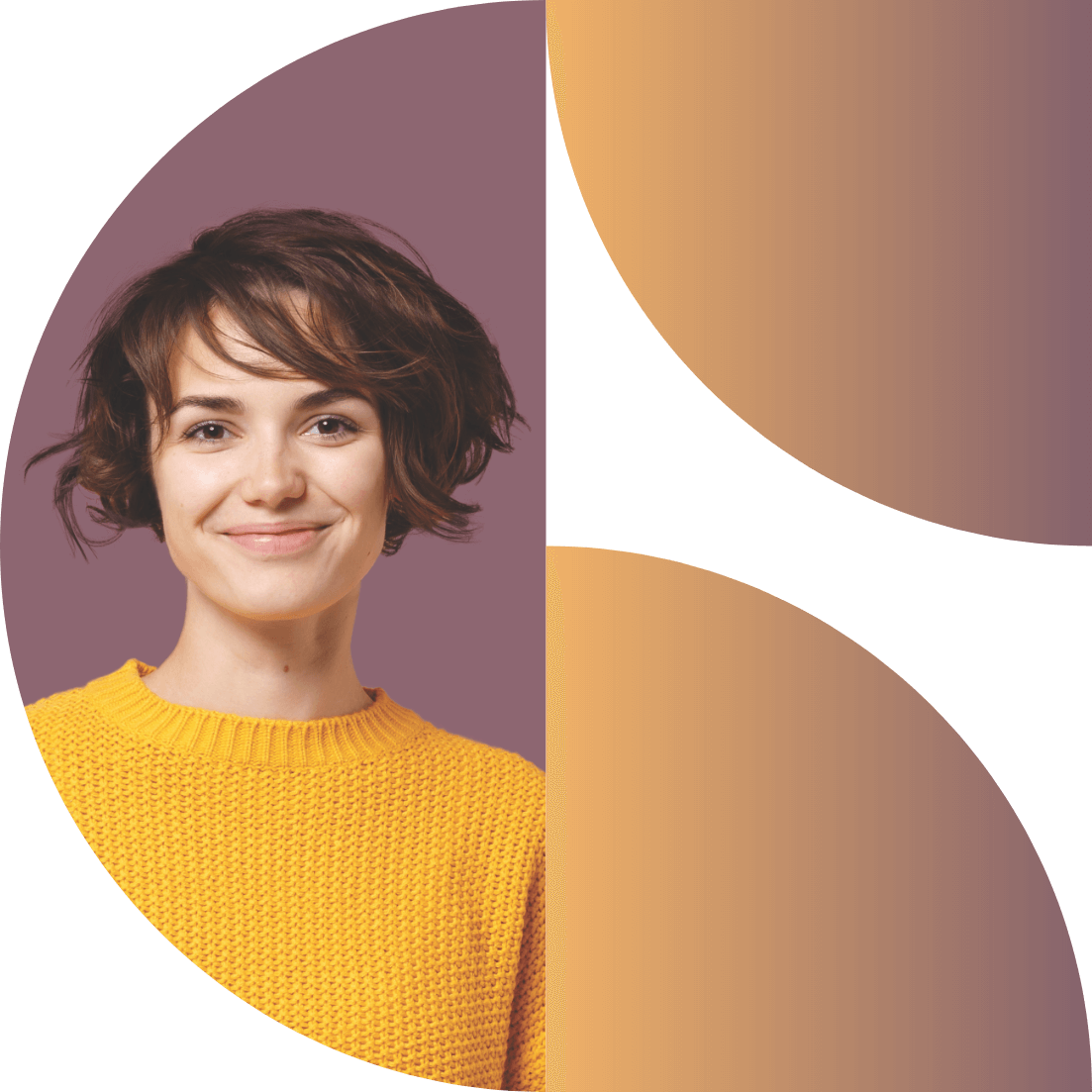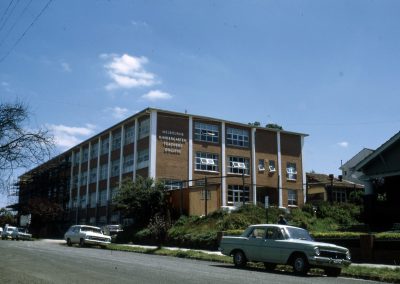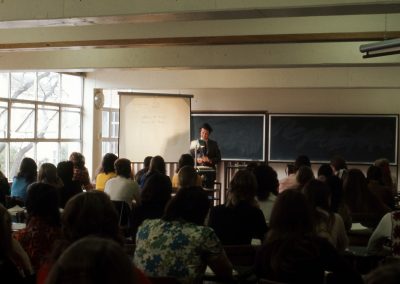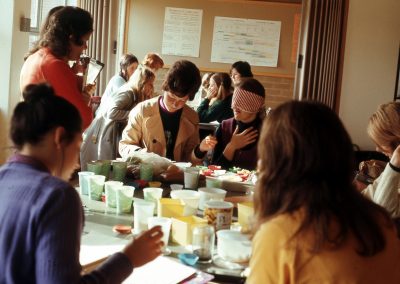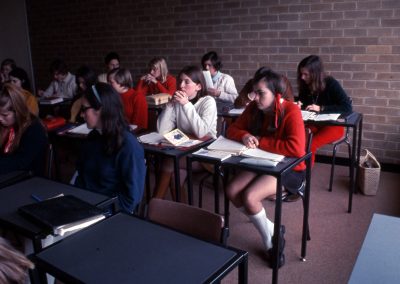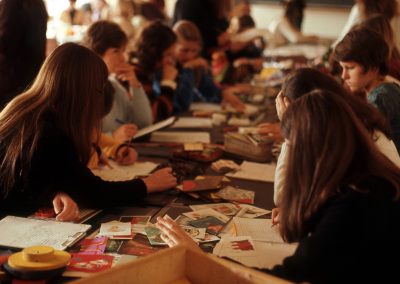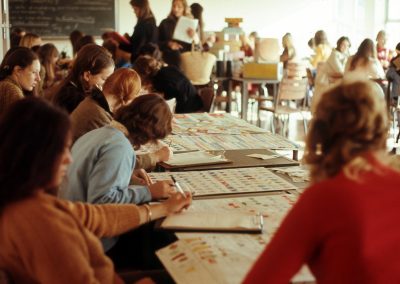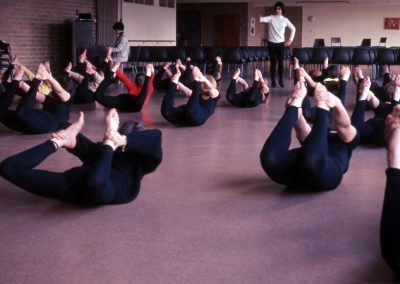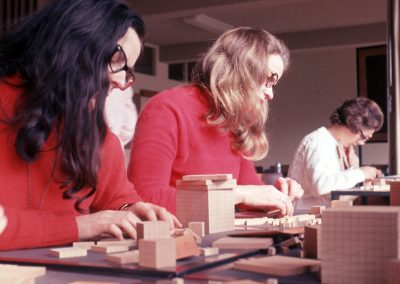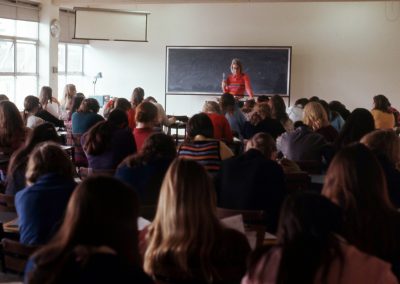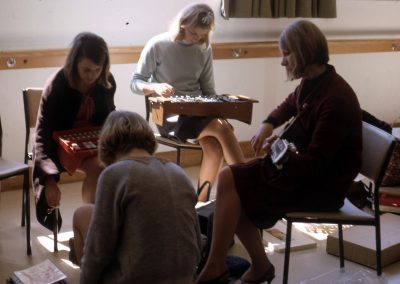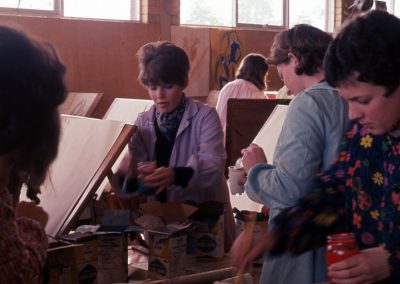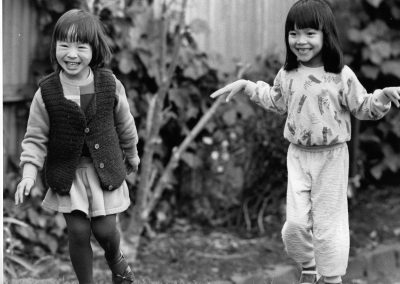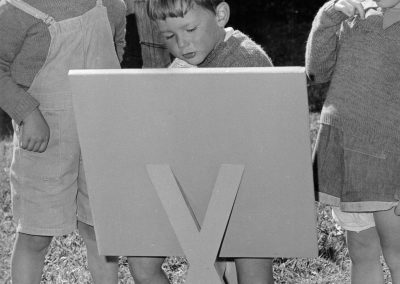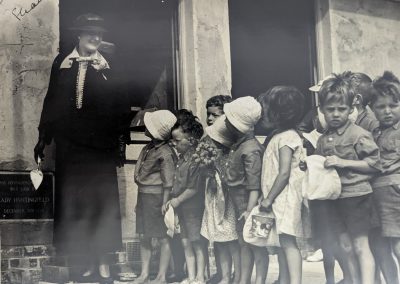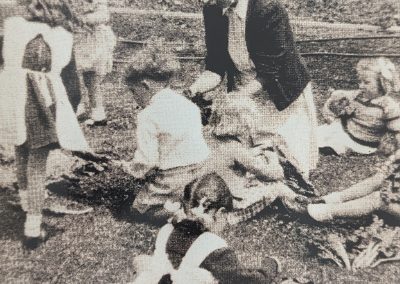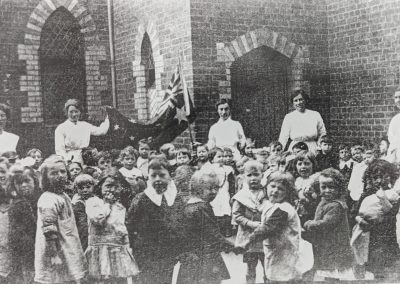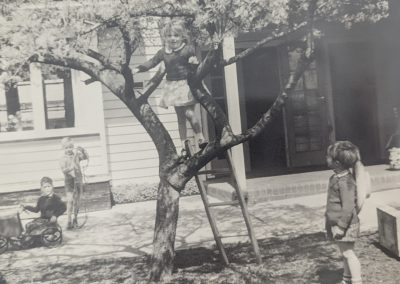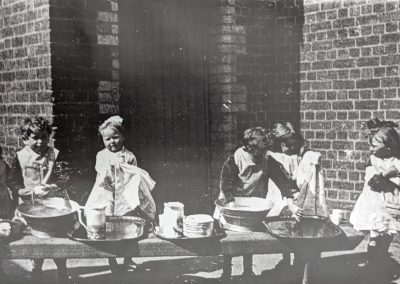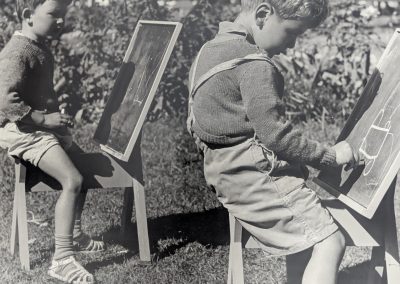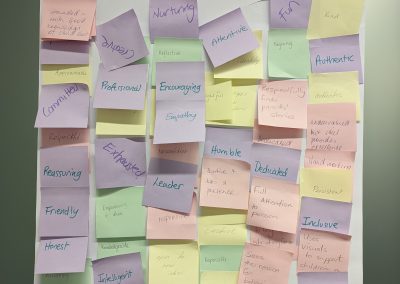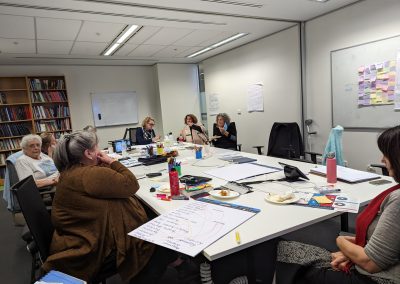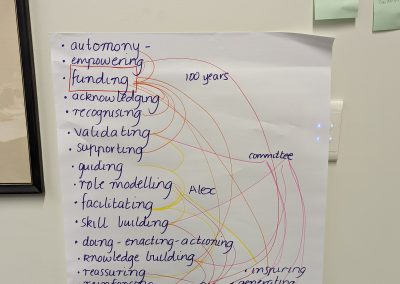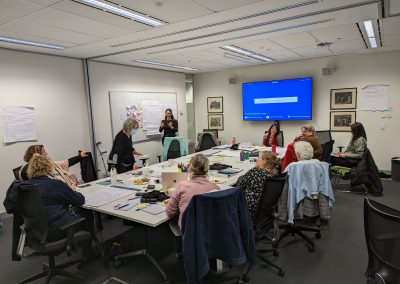100 Years of Excellence
AGECS celebrated the one hundred year anniversary with a series of projects designed to celebrate and reward the early childhood community. Read more about the projects below.
Grants
AGECS awarded more than $70,000 in grant funding to small projects in stand-alone, long day care and family day care services. Stories from the grant recipients were featured in AUDAX editions Autumn 2023 and Spring 2023.
Awards
We awarded 11 early childhood professionals who embed excellence in their everyday practice. The common themes across the successful nominations were community mindedness, positive attitudes and reflective practice. Recipients received certificates and $200 Magabala Book vouchers.
AUDAX Special Edition
Editor Wendy Grenfell collated over 50 stories from early childhood professionals. Interspersed are historical photos and key pieces of AGECS history including Forest Hill, Warrawong and Mooroolbeek.
A timeline
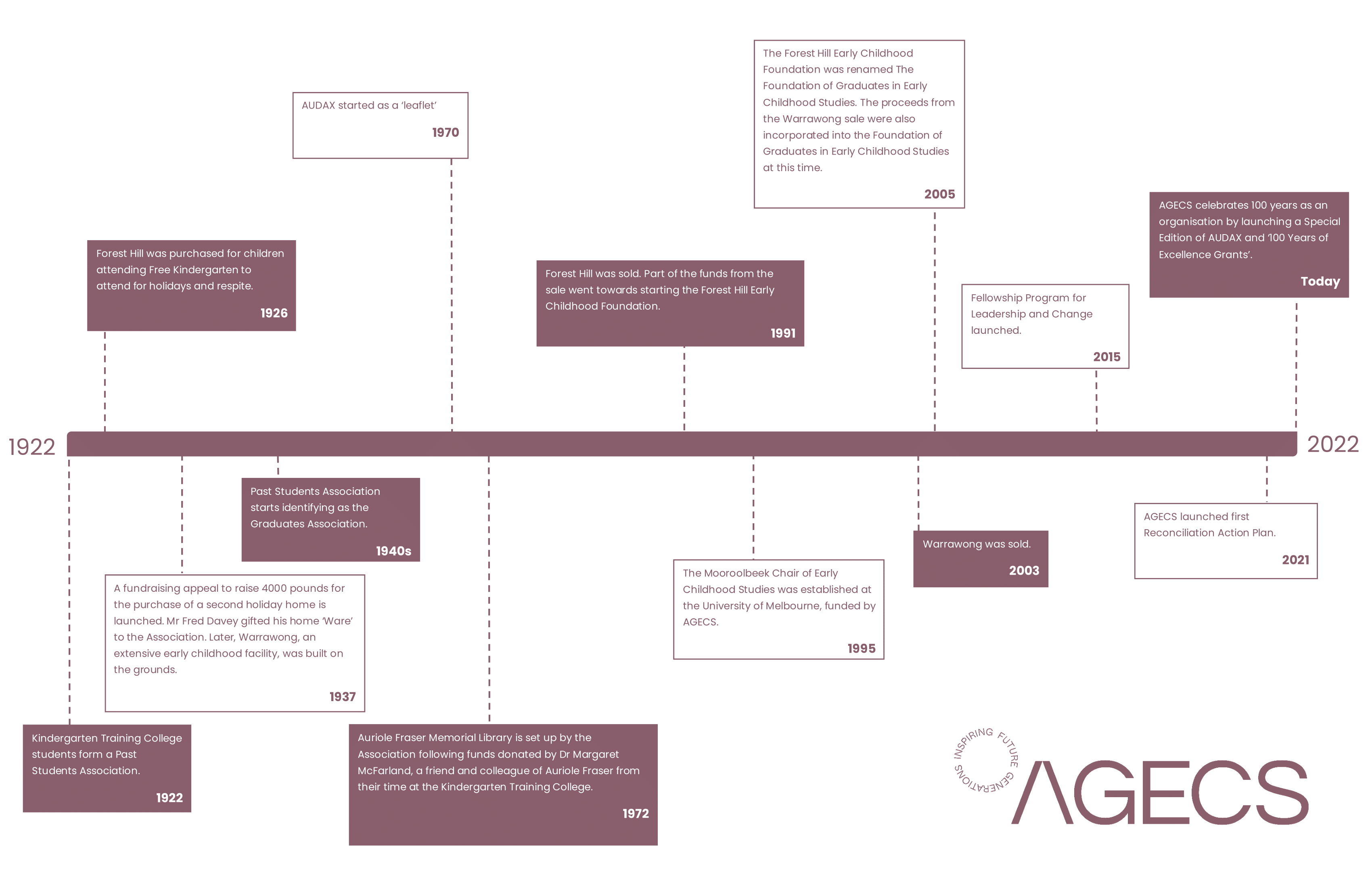
A brief history of the Association of Graduates in Early Childhood Studies
In order to understand the Association of Graduates in Early Childhood Studies (AGECS), it is important to understand our past, and our past is inextricably linked to the Melbourne Kindergarten Training College.
Before becoming the charitable organisation we are today, AGECS started as the past student’s association for the Melbourne Kindergarten Training College (MKTC). The acronym MKTC eventually changed to stand for the Melbourne Kindergarten Teacher’s College, before turning into the State College of Victoria: Institute of Early Childhood Development (IECD). Eventually the college was absorbed into the University of Melbourne.
If you’re in the mood for more reading, a more detailed history can be found here.
To learn some more about the two homes that the women who formed the original graduates association bought and ran, follow the links below to read the commemorative books ‘Warrawong: The First Fifty Years’ and ‘Forest Hill: 1926-1976’.
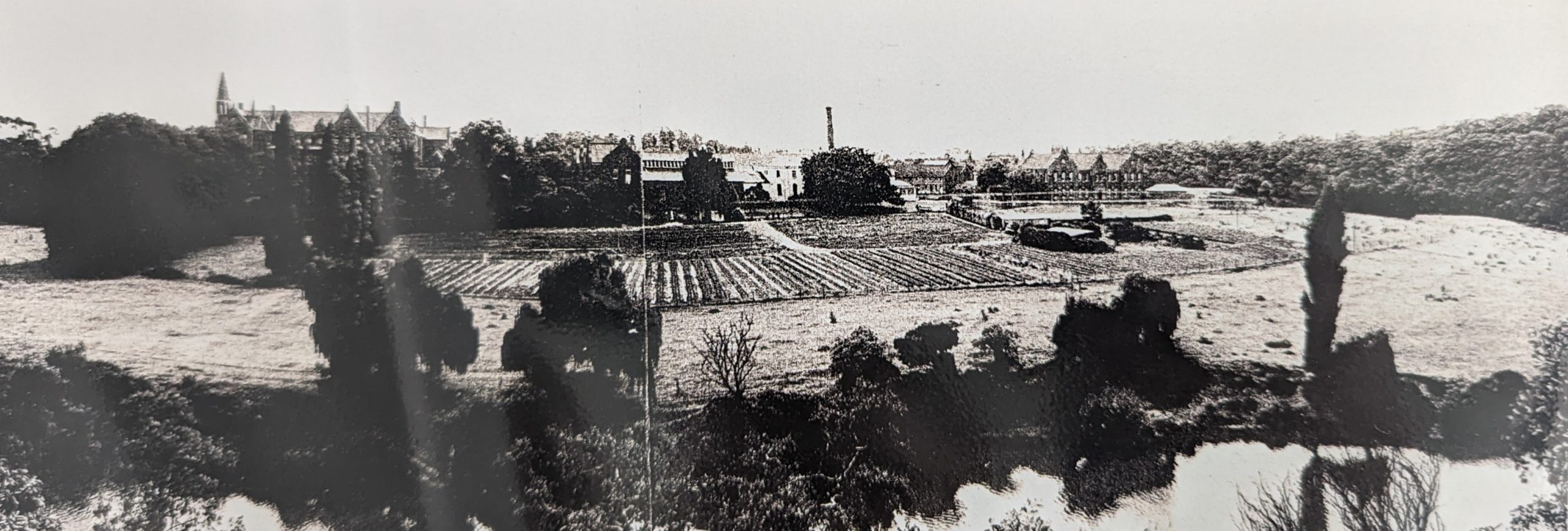
A rose by any other name…
In all this time, AGECS has gone by different names. As mentioned, we started as the Past Student’s Association, which was our name from our inception in 1922 to the 1940s. At this time, we became known as the Graduates Association, firstly of the MKTC and then of the IECD. It was not until the late 1990s that our current name was adopted.
Once we no longer operated as an alumni organisation, a permanent name was chosen: The Association of Graduates in Early Childhood Studies. This meant that anyone with a qualification in early childhood studies was able to join, not only graduates of the MKTC, IECD or University of Melbourne – something we are still reminding people of to this day!
Once we settled on a name, we tried out some different logos over the years.
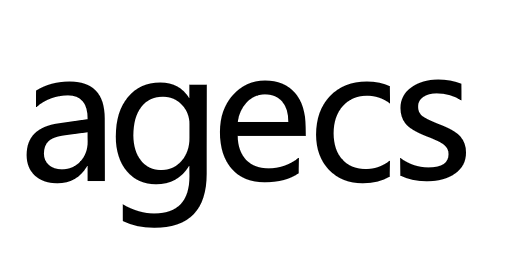
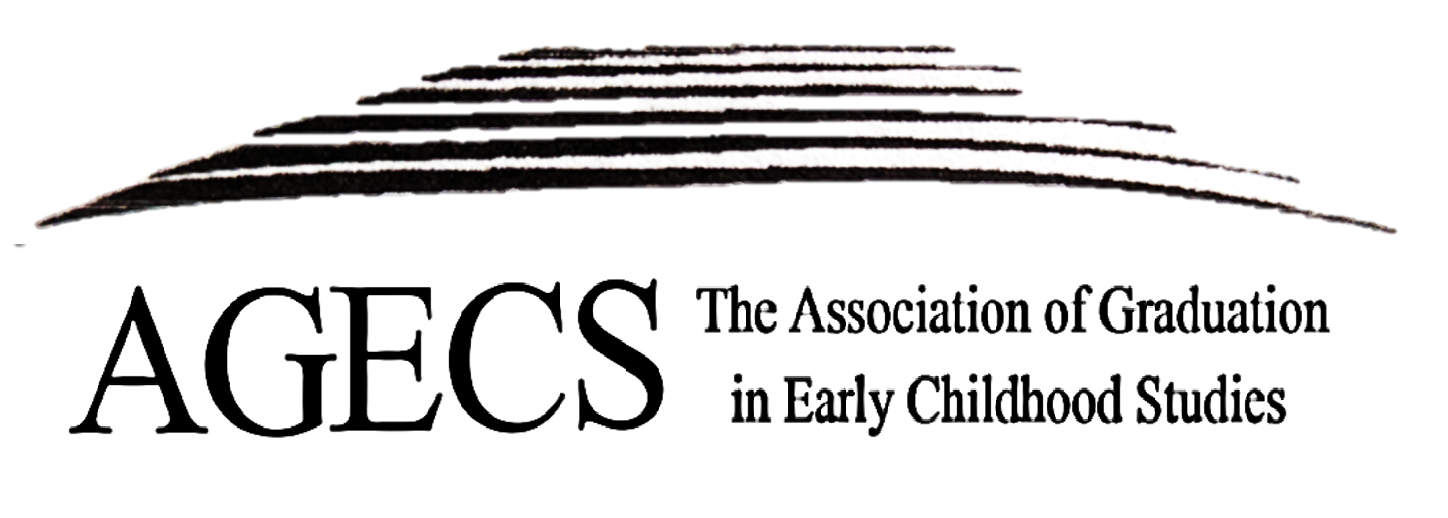
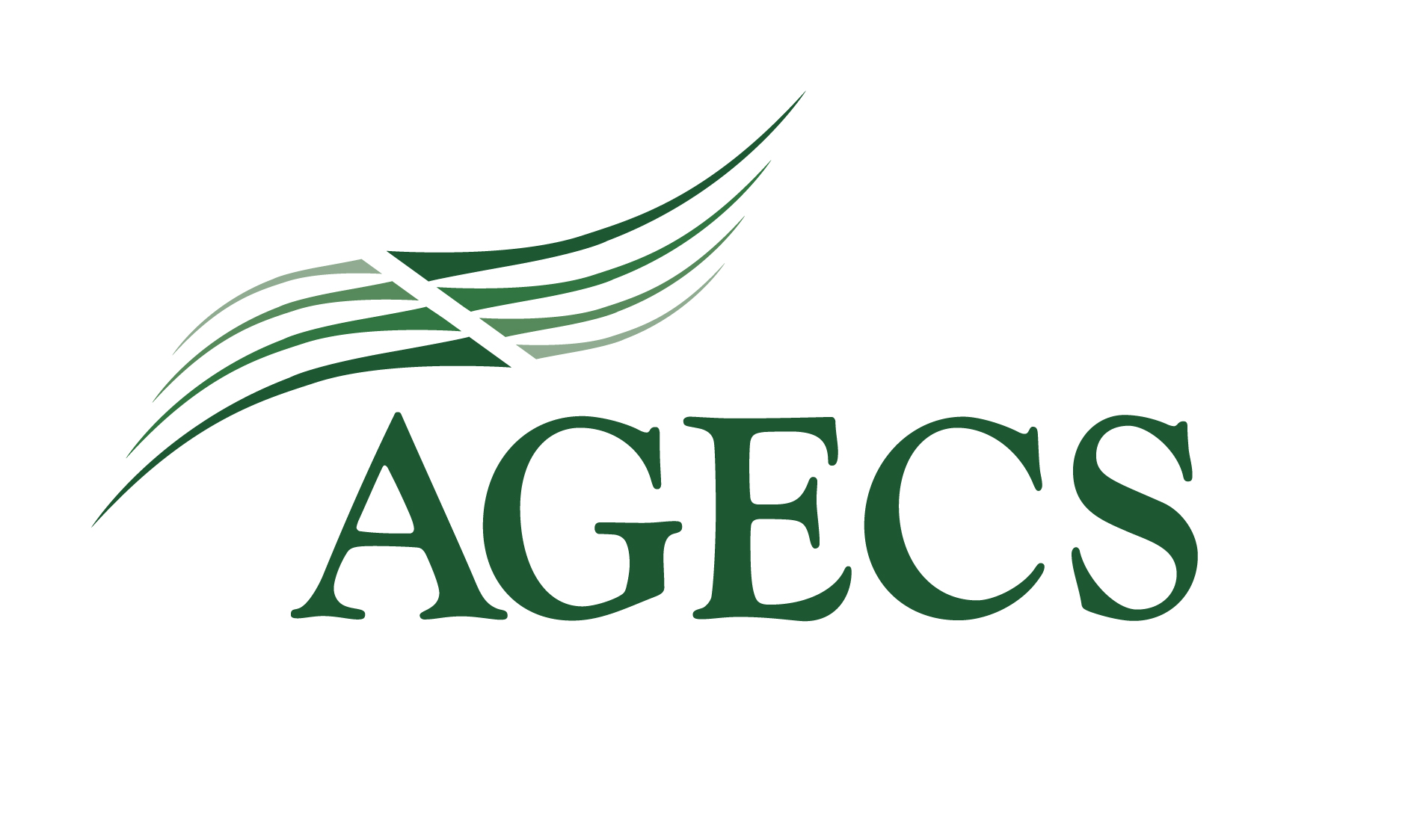
A step back in time
Although the training for teachers was quite different back then, reviewing the prospectuses from MKTC in 1933, 1943 and 1973 shows that things have not changed as much as we think they have. View the prospectus, now known as the course guide, for the teachers in training below. Then, continue into a series of photos of pre-service teachers from the MKTC.
Memories in the archives…
The image to the right shows the ‘typical program’ in 1940. We see listed:
9am – 9.30am: Medical Inspection by Director
9am – 11am: Milk. Free play. Children play indoors or outdoors as they please. Incidental music for small groups.
11am – 11.10am: Story time.
11.10am – 11.20am: Bathrooms. Change into slippers.
11.20am – 11.40am: Rest on beds.
11.40am – 12pm: Dinner (rusks, meat and vegetables, sweet, piece of raw fruit).
12pm – 2pm: Sleep.
2pm: Milk as children awaken. Parents call for children.
Above the timetable is a description of kindergarten at the time. It states:
‘The keynote of a present kindergarten is freedom to experiment and adventure with materials, the adult is more a guide than an instructor. Discussions are informal and activities as far as possible come through the child’s own purposes. Materials are gaily coloured, simple, and adaptable, and the children are encouraged to use these materials creatively in imaginative and constructive play. A more complete knowledge of the child’s physical development has led to an increase in the size of play equipment. This also is carefully planned to develop the child’s large muscles and to satisfy his needs for sensory experiences, dramatic and imaginative play.’
As we can see, although our profession has seen many changes there are still striking similarities in our day to day. This means the early childhood professionals AGECS supported when it first formed are not all that different to the early childhood professionals we support now, 100 years later.
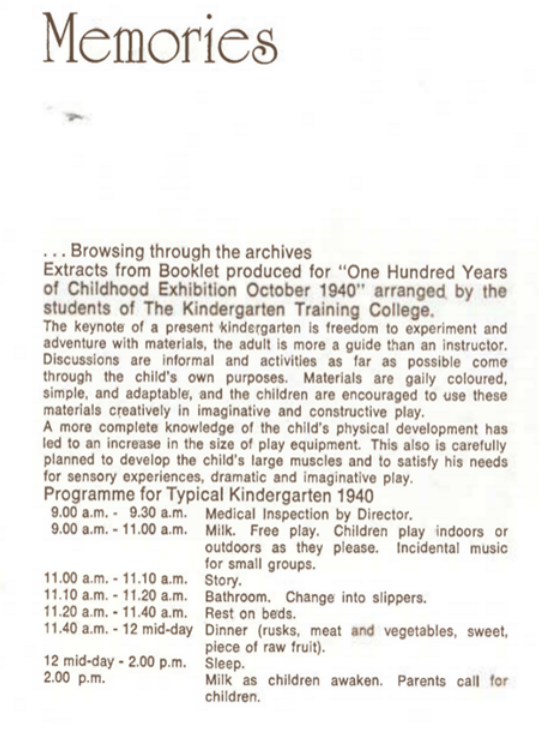
A look to the future
In June 2022 the AGECS Council started to plan the new strategic direction for the organisation, one that would match the new look AGECS acquired in 2021 through the rebranding process that occurred under Past President Alannah Dore. The strategic planning involved multiple meetings, the first of which was the Council’s first time together in person since 2019, due to the Covid-19 pandemic. During the meeting our strategic consultant, Melissa Eastwood, asked the Council Members to imagine an early childhood professional. The results are captured in an image shared in the gallery.
Under the guidance of Melissa the Council established the following strategic themes:
Resourcing, advancing, innovating, empowering, leading and connecting.
The goals for the next five years include serving our community, advancing knowledge and practice, provision of accessible and innovative resources and empowering early childhood professionals through a focus on professional wellbeing.
The strategic plan is has been outlined, and 2023 will see us start to enact our action plan. We will be reaching out to the early childhood community to raise the voices of early childhood professionals working in the field, so that we can respond to your needs, according to you.
Watch this space!

AGECS Acknowledgement of Country
The Association of Graduates in Early Childhood Studies would like to acknowledge both the Bunurong/Boon Wurrung, and Wurundjeri people as the Traditional Custodians of the Lands on which we are located in Melbourne. We pay our respects to their Elders past, present and emerging. We also acknowledge the Aboriginal language groups across all of Victoria, whose lands we provide funding for specific projects around Early Childhood Education. We acknowledge their history, their people, and their stories. As an Association we will work together for reconciliation, a process that starts with the acknowledgement of true Aboriginal and Torres Strait Islander histories and cultures of Australia, and will always value the contribution to our community and culture, the experiences of Aboriginal and Torres Strait Islander peoples, their families, communities and their stories.

